![Bailey, Derek & Cyro Baptista: Cyro [VINYL 2 LPs] (Honest Jons Records) Bailey, Derek & Cyro Baptista: Cyro [VINYL 2 LPs] (Honest Jons Records)](https://www.teuthida.com/productImages/misc4/27179.jpg)
Reissuing the 1st CD on UK free improvising guitarist Derek Bailey's Incus label is this 1982 duo with Brazilian percussionist Cyro Baptista, a remarkable dialog that draws percussive qualities from Bailey and lyrical aspects from Baptista, as the two push each other into inventive and exotic exchanges in an exuberant album; an incredible start to the Incus CD series.
Out of Stock
Quantity in Basket: None
Log In to use our Wish List
Shipping Weight: 30.00 units
Sample The Album:
Derek Bailey-guitar
Cyro Baptista-percussion
Click an artist name above to see in-stock items for that artist.
Inner sleeves with full-sized pictures of both artists.
UPC: 769791972346
Label: Honest Jons Records
Catalog ID: HJR 207LP
Squidco Product Code: 27179
Format: 2 LPS
Condition: New
Released: 2019
Country: UK
Packaging: 2 LPs in a cardstock sleeve
Recorded in New York City, New York, in October, 1982, by Martin Bisi. Originally released on CD on the Incus label in 1988 as catalog code CD 01.
"When Cyro Baptista moved to New York in 1980 from his home city of São Paulo, he brought with him an arsenal of percussion instruments, including the cuica (friction drum), surdo (the booming bass drum associated with samba), berimbau (single-string bow with resonating gourd), and cabasas galore, in the next few years deploying them most notably in numerous ensembles curated by John Zorn, who helped set up this studio session in 1982.
As you might expect from someone whose infectious grooves have graced the work of Herbie Hancock, Astrud Gilberto and Cassandra Wilson, Baptista expertly fires off cunning polyrhythms, even traces of thumping samba, with restless fluency. Bailey the wily old fox skirts and eschews the bait, which is quickly conjured away and newly fashioned. The guitarist homes in on the delicious squeaks of the cuica and the twanging drones of the berimbau with truly awesome tonal precision. You could sing along if you wanted, after a caipirinha or two. And he gets almost as many different sounds from his instrument as Baptista can from his kit - check out the stratospheric plings and string-length fret-sweeps of Tonto, which sound more like a prepared piano than an acoustic guitar.Wonders abound, from the berimbau/bent-string exchanges that open Quanto Tempo to the delightful collision of howling cuica and spiky bebop on Polvo, and the spare, preposterous Webernian samba of Improvisation 3.
These days, 'improvisation' often appears without its customary qualifier 'free'. If there were ever a case to be made for its reinstatement, this album is the best supporting evidence. Freedom means you're free to get into the groove, free not to, free to play with each other, free to play against each other. Sometimes frustrating, even scary, but more often than not in the hands of these two great masters it's hilarious, exhilarating and utterly irresistible."-Honest Jon's Records
"The pairing of Brazilian percussion god Cyro Baptista and vanguard British improv guitarist Derek Bailey may seem an unlikely one in concept, but never was there a more natural and rewarding collaboration in reality. Recorded in 1982 by Martin Bisi in New York, Bailey is unusually affable in his reaching out to Baptista, whose abilities are so great he only needs one welcoming gesture before he's off and running. There is no call and response in this collaboration. Dynamics, drama, and tonal explorations are the linguistic keys employed by both men -- who had had numerous opportunities to play together in live settings in New York previous to this outing -- in their search for each other. Nothing in this set seeks to reach beyond the platform of instrumental interplay and percussive communication that exists between these two men. Bailey sticks with a six-string acoustic guitar for the entire proceeding, while Baptista employs a large host of Brazilian and South American small instruments. One can hear, in the early going especially, the temptation to pander to exotica in tracks like "Quanto Tempo," "Polvo," and "Toca Joga." But it is resisted and maneuvered around in such a way that exotica does the pandering and is left in the hut behind deep tonal chasms, timbral expositions, and rhythmic dissertations -- Bailey is as great a percussionist as he is a guitarist. The solid line circling the players becomes a jump-off point in "Tonto" and a thing to be subverted in "Batida," which closes the album. If ever there was a Derek Bailey record that sings with joy and unfettered experimental glee, this is it."-Thom Jurek, All Music
Inner sleeves with full-sized pictures of both artists.
Get additional information at All Music
Artist Biographies
• Show Bio for Derek Bailey "Derek Bailey (29 January 1930 - 25 December 2005) was an English avant-garde guitarist and leading figure in the free improvisation movement. Bailey was born in Sheffield, England. A third-generation musician, he began playing the guitar at the age of ten, initially studying music with his teacher and Sheffield City organist C. H. C. Biltcliffe, an experience that he did not enjoy, and guitar with his uncle George Wing and John Duarte. As an adult he worked as a guitarist and session musician in clubs, radio, dance hall bands, and so on, playing with many performers including Morecambe and Wise, Gracie Fields, Bob Monkhouse and Kathy Kirby, and on television programs such as Opportunity Knocks. Bailey's earliest foray into 'what could be called free improvised music' was in 1953 with two other guitarists in their shared flat in Glasgow. He was also part of a Sheffield-based trio founded in 1963 with Tony Oxley and Gavin Bryars called "Joseph Holbrooke" (named after the composer, whose work they never actually played). Although originally performing relatively "conventional" modal, harmonic jazz this group became increasingly free in direction. Bailey moved to London in 1966, frequenting the Little Theatre Club run by drummer John Stevens. Here he met many other like-minded musicians, such as saxophonist Evan Parker, trumpet player Kenny Wheeler and double bass player Dave Holland. These players often collaborated under the umbrella name of the Spontaneous Music Ensemble, recording the seminal album Karyobin for Island Records in 1968. In this year Bailey also formed the Music Improvisation Company with Parker, percussionist Jamie Muir and Hugh Davies on homemade electronics, a project that continued until 1971. He was also a member of the Jazz Composer's Orchestra and Iskra 1903, a trio with double-bass player Barry Guy and tromboneist Paul Rutherford that was named after a newspaper published by the Russian revolutionary Vladimir Lenin. In 1970, Bailey founded the record label Incus with Tony Oxley, Evan Parker and Michael Walters. It proved influential as the first musician-owned independent label in the UK. Oxley and Walters left early on; Parker and Bailey continued as co-directors until the mid-1980s, when friction between the men led to Parker's departure. Bailey continued the label with his partner Karen Brookman until his death in 2005[citation needed]. Along with a number of other musicians, Bailey was a co-founder of Musics magazine in 1975. This was described as "an impromental experivisation arts magazine" and circulated through a network of like-minded record shops, arguably becoming one of the most significant jazz publications of the second half of the 1970s, and instrumental in the foundation of the London Musicians Collective. 1976 saw Bailey instigate Company, an ever-changing collection of like-minded improvisors, which at various times has included Anthony Braxton, Tristan Honsinger, Misha Mengelberg, Lol Coxhill, Fred Frith, Steve Beresford, Steve Lacy, Johnny Dyani, Leo Smith, Han Bennink, Eugene Chadbourne, Henry Kaiser, John Zorn, Buckethead and many others. Company Week, an annual week-long free improvisational festival organised by Bailey, ran until 1994. In 1980, he wrote the book Improvisation: Its Nature and Practice. This was adapted by UK's Channel 4 into a four-part TV series in the early '90s, edited and narrated by Bailey. Bailey died in London on Christmas Day, 2005. He had been suffering from motor neurone disease." ^ Hide Bio for Derek Bailey • Show Bio for Cyro Baptista "Cyro Baptista (born December 23, 1950) is a Brazilian musician, teacher, and recording artist specializing in percussion in the genres of jazz and world music. Born in S‹o Paulo, Brazil, Baptista arrived in the U.S. in 1980 with a scholarship to Creative Music Studio in Woodstock, New York. He has recorded and toured regularly with popular musicians and groups. Baptista creates many of the percussion instruments he plays. Baptista recorded with pianist Herbie Hancock on his 2005 release, Possibilities. In 2002 Baptista toured with Yo-Yo MaÕs Brazil Project and also appeared on the Obrigado Brazil album Š winner of two Grammy awards. He also toured with Trey Anastasio of Phish and John Zorn. He recorded and performed worldwide with Herbie HancockÕs Grammy award-winning GershwinÕs World. Baptista collaborated with Wynton Marsalis and the Lincoln Center Jazz Orchestra for a Brazilian Carnival modern jazz concert. For over two years, he toured with Paul Simon's Rhythm of the Saints tour and appears on his Concert in Central Park release. He also toured worldwide with Sting in 2001. Baptista has performed or recorded with many artists, including: Trey Anastasio, Laurie Anderson, Derek Bailey, Gato Barbieri, Daniel Barenboim, Kathleen Battle, David Byrne, Dr. John, Brian Eno, Melissa Etheridge, Stephen Kent, Wynton Marsalis, Bobby McFerrin, Medeski Martin & Wood, Robert Palmer, Carlos Santana, Tim Sparks, Spyro Gyra, Sting, James Taylor, Michael Tilson Thomas, Yo-Yo Ma, and John Zorn. He has also played with many noted Brazilian artists such as Badi Assad, Ivan Lins, Marisa Monte, Milton Nascimento, Nana Vasconcelos and Caetano Veloso. Baptista has performed on five Grammy award-winning albums: Yo-Yo MaÕs Obrigado Brazil, Cassandra WilsonÕs Blue Light 'Til Dawn, The ChieftainsÕ Santiago, Ivan LinsÕ A Love Affair, and Herbie HancockÕs GershwinÕs World. A documentary on BaptistaÕs project, Beat the Donkey, recorded for the WGBH-TV Boston program ŌLa PlazaÕ, won 3 New England EMMY Awards in 2002. Baptista appeared in Nicolas Humbert and Werner Penzel's 1990 documentary film on Fred Frith, Step Across the Border. He has also composed music for programs on the children's television network Nickelodeon. Baptista formed Beat the Donkey, a percussion and dance ensemble in 2002. The debut self-titled album Beat the Donkey (Tzadik) was picked by Jon Pareles of The New York Times as one of the ten best alternative albums of 2002. Readers of JAZZIZ magazine and DRUM magazine voted it "Best Brazilian CD of the Year" and named Baptista "Best Percussionist of 2002." Down Beat magazine's 51st annual critics' poll selected Baptista as 'Rising Star' in percussion. The group released its second album, Love the Donkey on John Zorn's independent Tzadik record label in 2005. Baptista's first solo recording in 1997, Villa Lobos/Vira Loucos, is a mix of his own compositions with the work of the Brazilian composer Heitor Villa-Lobos. It was called "the most courageous, bright, funny, dramatic, and imaginative work in recent memory." Blue Note Records released Supergenerous, a duo CD recorded with guitarist Kevin Breit (KD Lang, Cassandra Wilson). Billboard called Supergenerous "pure aural pleasure" and the Washington Post noted it "a marvelous debut that manages to feel outside and intimate at the same time." Baptista conducts educational "rhythm workshops" in a variety of formats. He has provided presentations for a range of audiences, from elementary school children to professional musicians. He has conducted workshops and master classes at numerous institutions throughout the world. These include Berklee College of Music (Boston), The New School (New York City), Drummer's Collective (New York City), Mannes College of Music (New York City), New World Symphony Orchestra (Miami) and Rimon School of Music (Tel-Aviv, Israel). In 2009 Baptista won a Fellow Award in Music from United States Artists. Baptista plays congas, bongos, tambourine, maracas, caxixi, agogo bells, pandeiro, pandora, cuica, bells, gong, drums, ceramic drums, surdo, berimbau, shaker, triangle, temple blocks, bass drum, metal percussion, campana, caja, udu, arrelegos, bell tree, bottles, washboard, rubboard, hadgini, cowbell, timbales, shekere, wood block, repique, Rototoms, cabasa, apito, mark tree, whistles, shekere, tabla, talking drum, finger cymbals, Chinese bells, tamborim, snare drum, whistles, typewriter, Alfaia, bird calls, clay drums, cymbals, kalimba, wind chimes, tom-toms, water gong, vacuum cleaner, water phone, peneira cheia, alarm clock, and other percussion." ^ Hide Bio for Cyro Baptista
1/5/2026
Have a better biography or biography source? Please Contact Us so that we can update this biography.
1/5/2026
Have a better biography or biography source? Please Contact Us so that we can update this biography.
Track Listing:
SIDE A
1. Toca Joga 5:25
2. Quanto Tempo 3:47
3. Polvo 4:47
4. Rio Branco 5:15
SIDE B
1. Joga Toca 3:22
2. Que Horas 4:56
3. Tonto 6:54
4. Batida 4:33
SIDE C
1. Improvisation 1
2. Improvisation 2
3. Improvisation 3
SIDE D
1. Improvisation 4
2. Improvisation 5
Vinyl Recordings
Improvised Music
Improvised Music
Free Improvisation
London & UK Improv & Related Scenes
NY Downtown & Metropolitan Jazz/Improv
Guitarists, &c.
Bailey, Derek
Percussion & Drums
Duo Recordings
Jazz Reissues
Staff Picks & Recommended Items
Search for other titles on the label:
Honest Jons Records.


![Bailey, Derek & Cyro Baptista: Cyro [VINYL 2 LPs] (Honest Jons Records) Bailey, Derek & Cyro Baptista: Cyro [VINYL 2 LPs] (Honest Jons Records)](https://www.teuthida.com/productImages/full/27179.Full.jpg)
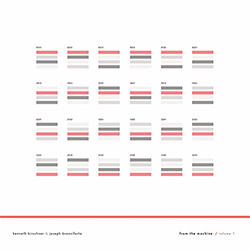

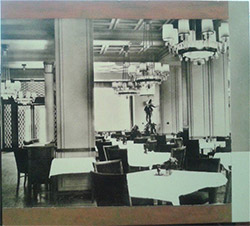
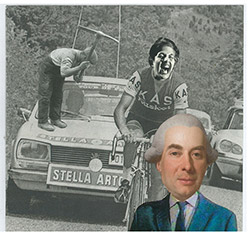

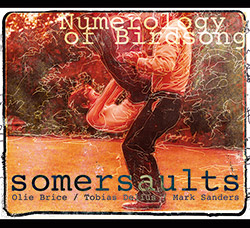

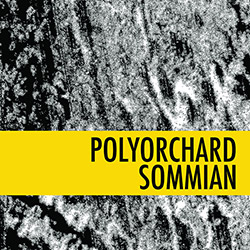

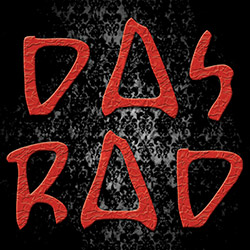
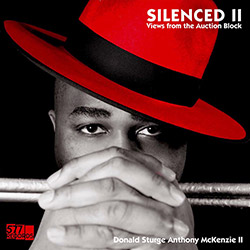
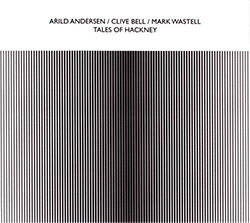
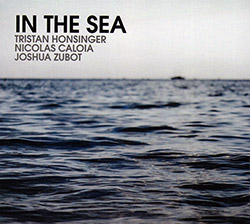

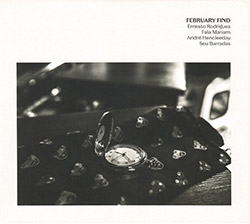




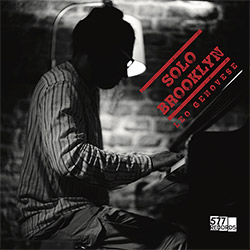
![Coley, Byron / Mats Gustafsson / Thurston Moore: Now Jazz Now: 100 Essential Free Jazz & Improvisation Recordings (1960-80) [BOOK]](https://www.teuthida.com/productImages/misc4/36932.jpg)
![Evans, Peter / Being & Becoming: Ars Ludricra [VINYL + DOWNLOAD]](https://www.teuthida.com/productImages/misc4/37026.jpg)
![HobbyHouse (Mia Dyberg / Axel Filip): HobbyHouse [CD + DOWNLOAD]](https://www.teuthida.com/productImages/misc4/36944.jpg)
![Mines, Kelsey / Erin Rogers: Scratching At The Surface [CD + DOWNLOAD]](https://www.teuthida.com/productImages/misc4/36945.jpg)
![Nebbia, Camila (feat/ Marilyn Crispell / Lesley Mok): A Reflection Distorts Over Water [CD + DOWNLOAD]](https://www.teuthida.com/productImages/misc4/36946.jpg)
![Vanheerentals, Adia: Taking Place [CD + DOWNLOAD]](https://www.teuthida.com/productImages/misc4/36947.jpg)
![Mines, Kelsey / Vinny Golia: Collusion and Collaboration [CD + DOWNLOAD]](https://www.teuthida.com/productImages/misc4/36948.jpg)
![Parkins, Zeena: Lament For The Maker [CD + DOWNLOAD]](https://www.teuthida.com/productImages/misc4/36949.jpg)
![Evans, Peter / Mike Pride : A Window, Basically [CD + DOWNLOAD]](https://www.teuthida.com/productImages/misc4/36950.jpg)


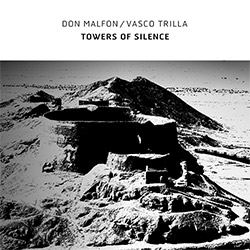
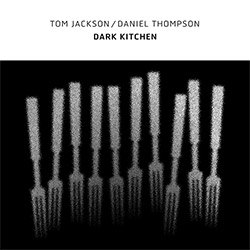
![Frey, Jurg : Composer, Alone [3 CDs]](https://www.teuthida.com/productImages/misc4/36927.jpg)
![Belorukov, Ilia / Alex Riva: Wrestling For Futility [CASSETTE w/DOWNLOAD]](https://www.teuthida.com/productImages/misc4/36994.jpg)
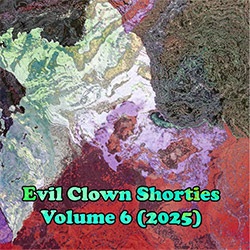
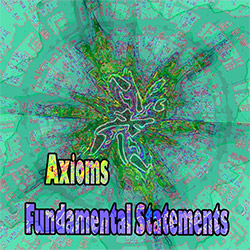







![Agnel, Sophie: Learning [VINYL]](https://www.teuthida.com/productImages/misc4/36841.jpg)
![Monaco, Amanda (w/ Michael Attias / Sean Conly / Satoshi Takeishi) : Deathblow [VINYL+ DOWNLOAD]](https://www.teuthida.com/productImages/misc4/36956.jpg)

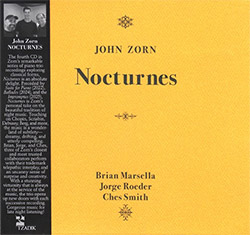
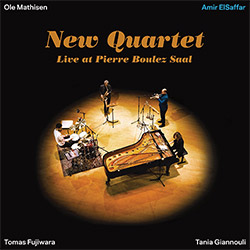
![ElSaffar, Amir / New Quartet : Live at Pierre Boulez Saal [VINYL]](https://www.teuthida.com/productImages/misc4/36830.jpg)

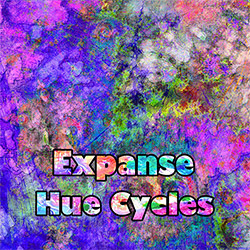
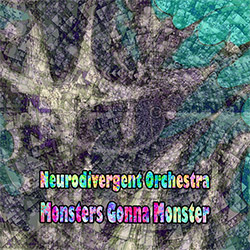
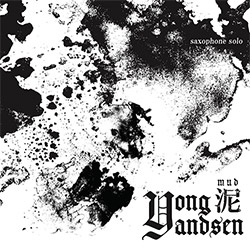

![Musicworks Magazine: #152 Fall 25 [MAGAZINE + CD]](https://www.teuthida.com/productImages/misc4/37004.jpg)





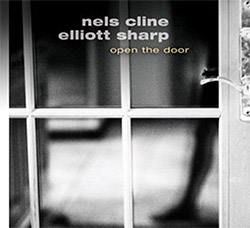
![[ahmed] (Thomas / Grip / Gerbal / Wright): Sama](https://www.teuthida.com/productImages/misc4/36976.jpg)

![Genthon, Anouck / Lionel Marchetti: Suite Blanche [2 CDs]](https://www.teuthida.com/productImages/misc4/36642.jpg)
![Toeplitz, Kasper T.: Erosions Programmees [CD + BOOKLET]](https://www.teuthida.com/productImages/misc4/36639.jpg)
![Gate, The : Almost Live [CASSETTE + MAGAZINE]](https://www.teuthida.com/productImages/misc4/36836.jpg)






![A Magic Whistle: The Solar Cell [VINYL]](https://www.teuthida.com/productImages/misc4/36658.jpg)

![McGee, Hal: Columbus Expedition [Cassette w/ Download]](https://www.teuthida.com/productImages/misc4/36650.jpg)


![Jaeger, Kassel: Fernweh [VINYL 2 LPs]](https://www.teuthida.com/productImages/misc4/36541.jpg)





![+DOG+: The Light Of Our Lives [2 CDs]](https://www.teuthida.com/productImages/misc4/36009.jpg)


![Eternities: Rides Again [CASSETTE]](https://www.teuthida.com/productImages/misc4/36247.jpg)

![Lopez, Francisco: Untitled (2021-2022) [2 CDs]](https://www.teuthida.com/productImages/misc4/36438.jpg)




![Frey, Jurg with ensemble]h[iatus: Je Laisse A La Nuit Son Poids D](https://www.teuthida.com/productImages/misc4/36988.jpg)




![Pisaro-Liu, Michael: Within (2) / Appearance (2) [2 CDs]](https://www.teuthida.com/productImages/misc4/36831.jpg)










![Musicworks Magazine: #151 Summer 25 [MAGAZINE + CD]](https://www.teuthida.com/productImages/misc4/36559.jpg)

![Brown, Dan / Dan Reynolds: Live At The Grange Hall [unauthorized][CASSETTE]](https://www.teuthida.com/productImages/misc4/36245.jpg)


![Zorn, John: The Song of Songs [CD + CD BOOK]](https://www.teuthida.com/productImages/misc4/36923.jpg)

![Coultrain: Mundus [COLORED VINYL]](https://www.teuthida.com/productImages/misc4/33056.jpg)
![Hprizm: Signs Remixed [COLORED VINYL]](https://www.teuthida.com/productImages/misc4/30635.jpg)
![Halls Of the Machine: All Tribal Dignitaries [CASSETTE w/ DOWNLOAD]](https://www.teuthida.com/productImages/misc4/36134.jpg)



![Koenjihyakkei: Live at Club Goodman [2 CDs]](https://www.teuthida.com/productImages/misc4/36111.jpg)

![Sorry For Laughing (G. Whitlow / M. Bates / Dave-Id / E. Ka-Spel): Rain Flowers [2 CDS]](https://www.teuthida.com/productImages/misc4/35985.jpg)

![Rolando, Tommaso / Andy Moor : Biscotti [CASSETTE w/ DOWNLOADS]](https://www.teuthida.com/productImages/misc4/36106.jpg)


![Electric Bird Noise / Derek Roddy: 8-10-22 [CD EP]](https://www.teuthida.com/productImages/misc4/35970.jpg)








![Elephant9 : Mythical River [VINYL]](https://www.teuthida.com/productImages/misc4/34624.jpg)



![Elephant9 with Terje Rypdal: Catching Fire [VINYL 2 LPs]](https://www.teuthida.com/productImages/misc4/35355.jpg)
![Coley, Byron: Dating Tips for Touring Bands [VINYL]](https://www.teuthida.com/productImages/misc4/17906.jpg)

![Lost Kisses: My Life is Sad & Funny [DVD]](https://www.teuthida.com/productImages/misc4/lostKissesDVD.jpg)